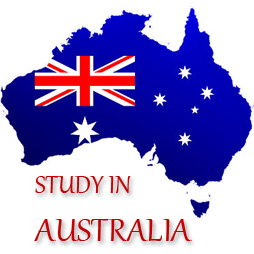


|
Tweet
Pin
It
|
 |
| » Introduction |
| » Education System |
| » Gateway to Australian Education |
| » How to Apply |
| » Student Visa Options |
| » Australian Scholarships |
| » Universities in Australia |
| » Australian Consulates |
There are different types of visas for you to choose from if you are going for tertiary education. These include,
English Language Intensive Courses for Overseas Students (ELICOS)
Visa :
This visa allows you to stay in Australia to study a full-time English
Language Intensive Course for Overseas Students (ELICOS). If you are
planning on taking English courses that will not result in a degree, this
is the visa that you need to apply for.
Vocational Education and Training (VET) Visa :
If you are not coming to Australia in order to take intensive English
Language Course (like through ELICOS), but you are earning a vocational
degree of some sort, then you will need to obtain a VET visa. VET visas
are for those obtaining Certificates I, II, III, IV and those who are
obtaining vocational diplomas, vocational advanced diplomas, vocational
graduate certificates, or vocational graduate diplomas.
Higher Education Visa :
If you are earning any type of degree in an academic field, (anywhere
from academic levels 5 to 9 according to the Australian Qualifications
Framework), then you will apply for a higher education degree. You might
be able to get this visa if you are enrolled as a student in a registered
course for the award of
- a bachelor or associate degree
- a graduate certificate or graduate diploma
- a masters degree by coursework
- a higher education diploma or advanced diploma.
This is not the visa to apply for if you are pursuing a Master's research
degree.
Postgraduate Research Visa :
If you are earning a Master's research degree or a doctoral degree of
any type, then you must apply for this visa. Your university will help
you determine if your Master's is by coursework or by research.
Non-award Visa :
If you are looking to come to Australia for a semester or you are just
taking classes while residing in Australia without pursuing a degree,
then you have to apply for a non-award visa. This visa allows you to stay
in Australia to study a full-time.
- non-award foundation studies course
- course or components of a course (other than ELICOS) that does not lead
to an award.
Foreign Affairs or Defence Sector Visa :
These visas are designed for international students who are sponsored
by the Department of Foreign Affairs and Trade or the Department of Defence
to study a full-time course of any type in Australia.
Apart from these there are,
Schools Sector Visa for overseas students undertaking a course
of study at a primary school or a secondary school, including either junior
and senior secondary school or an approved secondary school exchange program.
Student Guardian visa which is a temporary visa for a person who
needs to come to Australia to provide care and support for:
- a student visa holder who is younger than 18 years of age
- a student visa holder who is older than 18 years of age and who needs
such care and support due to exceptional circumstances.
For applying to a student visa, the prospective student should :
The best way to find out your specific visa requirements is to visit the Department of Immigration and Border Protection ( DIBP) website or meet your education agent for advice and help with your visa application.
A student visa application will be assessed against one of the following:
Assessment levels depends on your country of origin and the type of study you intend to undertake (from English language courses and secondary school through to postgraduate research). The higher the assessment level (with Level 1 being the lowest and Level 3 being the highest), the greater the amount of evidence an applicant is required to demonstrate in order to support their student visa application.
To be eligible for streamlined visa processing, the student must lodge their applications with a CoE from a participating university or eligible non-university provider for Bachelor degrees, Masters degrees, Doctoral degrees, university student exchange programs or study abroad programs. These applicants do not receive an assessment level and are processed in a streamlined manner with reduced evidentiary requirements regardless of their country of origin.
Find it Useful ? Help Others by Sharing Online
|
Tweet
Pin
It
|
Comments and Discussions
|
|